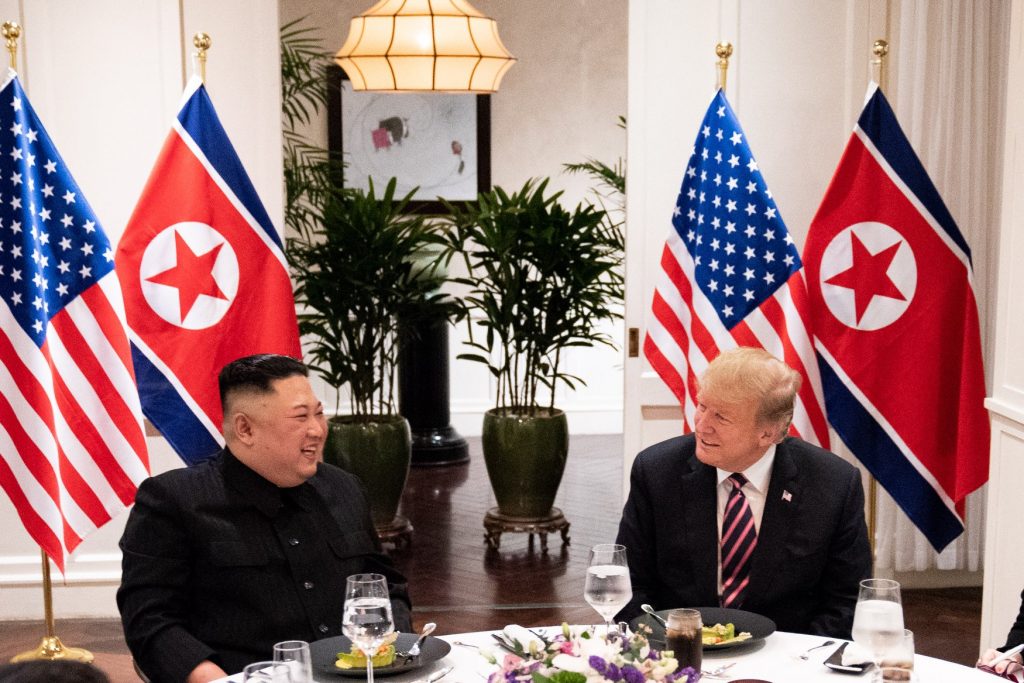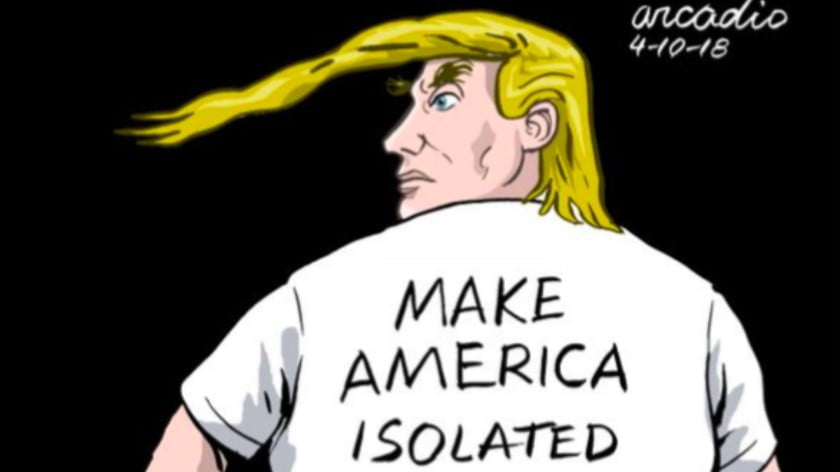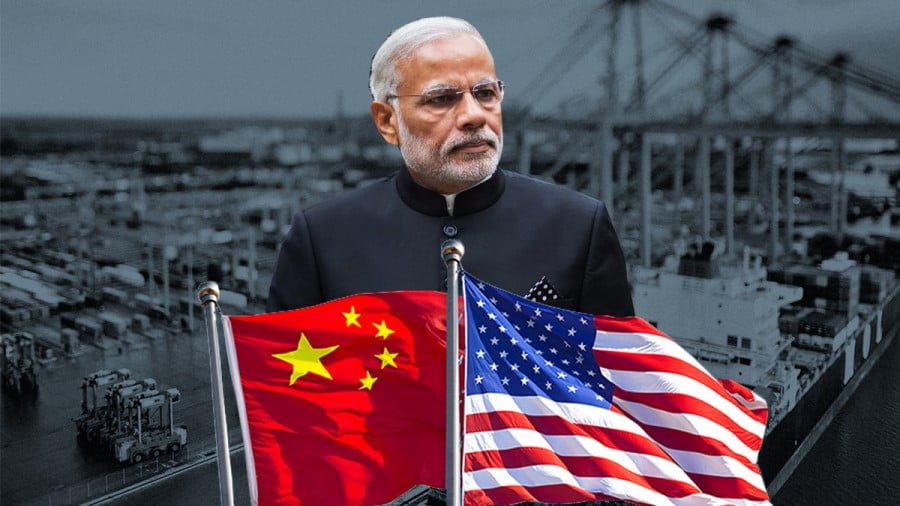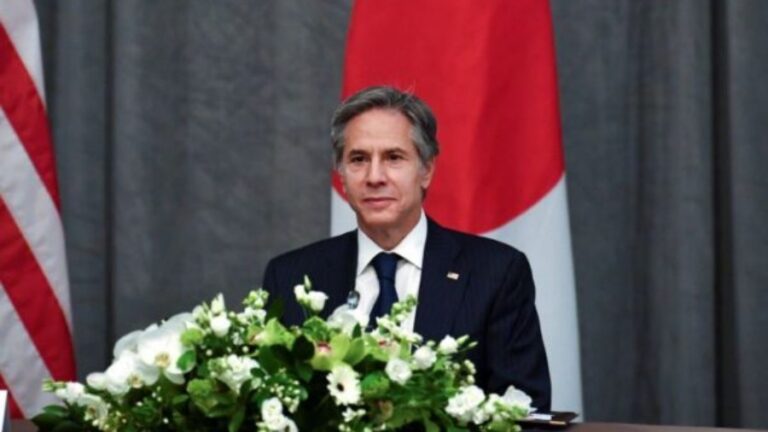US Negotiations: Masters of Defeats
Introduction
The US is currently engaged in negotiations with at least a dozen countries; which involve fundamental political, military and economic issues.
The US has adopted diplomatic strategies in the face of its ‘inability’ to secure military victories. The purpose of adopting a diplomatic approach is to secure through negotiations, in part or fully, goals and advantages unattainable through military means.
While diplomacy is less subject to military and economic losses it does require making concessions. Negotiations are only successful if there are reciprocal benefits to both parties.
Those regimes which demand maximum advantages and minimum concessions, usually fail or succeed because they are based on very unequal power relations.
We will proceed to evaluate Washington’s success or failure in recent negotiations and analyze the reasons and consequences for the outcome.
US – North Korea Negotiations
President Trump and North Korean leader Kim Jong-Un have been engaged in negotiations, for nearly a year. The White House has prioritized the ‘de-nuclearization’ of the peninsula which includes dismantling nuclear weapons, missiles, test sets and other strategic military objectives.
North Korea seeks the end of economic sanctions, the signing of a US-Korean peace treaty and diplomatic recognition. A decisive meeting between the two took place Feb. 26-27, 2019 in Hanoi.
The negotiations were a total failure. Washington failed to secure any gains, nor did they advance the peace process; and there are no future prospects.

North Korea offered three significant concessions which were not reciprocated. President Kim Jong-Un proposed to (1) dismantle nuclear testing sites (2) announce a moratorium on nuclear tests and inter-continental range ballistic missiles tests (3) agreed to partially dismantle missile engine test sites.
Washington offered nothing in return – instead it demanded total disarmament; no lifting of sanctions; no signing of the end of the US-Korea war.
Washington’s asymmetrical ‘negotiations’ were pre-determined to fail. The US underestimated the capacity of the North Koreans to insist on reciprocity; they believed that future verbal promises would entice the North Koreans to disarm. The Koreans were fully aware of the recent US record of reneging on signed agreements with Iran, China and its partners in the Belt and Road agreement.
Moreover, North Korea had powerful allies in China and Russia and nuclear weapons to resist added US pressure.
US – Iran Negotiations
US and Iran negotiated an agreement to terminate economic sanctions in exchange for ending nuclear weapons development. It temporarily succeeded but was quickly reversed by the Trump regime. The White House demanded Iran dismantle its missile defense program and threatened a military attack. Washington did not bargain, it sought to impose a one-sided ‘solution’. The UK,France,Germany Russia and China, co- signers of the agreement, rejected the Trump dictate, but a number of major EU multi- national corporations capitulated to the White House demand to tighten sanctions.
As a consequence, the US deliberate sabotage of negotiations pushed Iran closer to Russia, China and alternative markets while the US remained wedded to Saudi Arabia and Israel. The former engaged in a losing war with Yemen, the latter remained an international pariah receiving billions of US handouts.
US – China Negotiations
The US has engaged in negotiations with China to downgrade its economy and retain US global supremacy. Beijing has agreed to increase its imports from Washington and tighten controls over Chinese use of US technology, but the US has not offered any concessions. Instead Washington has demanded that China end the state’s role in financing its cutting- edge technology, artificial intelligence and communication innovations.
In other words, China is expected to surrender its structural advantages in order to avoid harsh White House tariffs which would reduce Chinese exports.
There is no reciprocity. The Trump regime operates by threats to China which, however, will have negative effects on US farmers dependent on Chinese markets; on US importers, especially the retail sector which imports Chinese products; consumers who will suffer higher prices for goods purchased from China.
In addition, China will deepen its links with alternative markets in Asia, Africa, Russia, Latin America and elsewhere.
As of the most recent year (2018) China’s positive trade balance with the US rose to $419 billion dollars while the US was forced to increase its subsidies to US agro- exporters to compensate for loss of sales to China.
After several months of negotiations US representatives have secured trade concessions but failed to impose a breakdown of China’s economic model.
By the middle of 2019, while negotiations continue, the likelihood of a ‘grand bargain’ is dismal. In large part this is because Washington fails to recognize that its weakened global position requires that the US engage in ‘structural changes’, which means that the Treasury invests in technology; labor upgrades and education. The US should practice reciprocal relations with dynamic trading partners;to do so, Washington needs to invest billions to upgrade its domestic infrastructure; and reallocate federal spending from military spending and wars to domestic priorities and productive overseas agreements. US diplomatic relations with China based on threats and tariffs are failing and economic negotiations are deteriorating.
US – Venezuela: Non-Negotiations a Formula for Defeat
Over the past half- decade (2015 – 2019) Washington has succeeded in restoring client regimes in Latin America, by military coups, political intervention and economic pressure. As a consequence, the White House has successfully ‘negotiated’ one-sided political, economic, social and diplomatic outcomes in the region … with the exception of Cuba and Venezuela.
President Trump has broken negotiated agreements with Cuba to no advantage; US threats have led to Cuba securing greater ties with Europe, China, Russia and elsewhere without affecting Cuba’s tourist business.
The Trump regime has escalated its political and economic propaganda and social war against Venezuela. Multiple overt coup efforts have backfired beginning in April 2002 to February 2019.
While the US succeeded in the rest of Latin America in consolidating hemispheric hegemony, in the case of Venezuela, Washington has suffered diplomatic defeats and the growth of greater popular resistance.
US interventionist and sanctions policies have sharply reduced the presence of its middle and lower middle class supporters who have fled abroad. US propaganda has failed to secure the support of the Venezuelan military which has become more ‘nationalist’ with very few desertions.
The White House appointment of the convicted felon Elliott Abrams, known as the ‘butcher of Central America’, has certainly undermined any prospect of a favorable diplomatic settlement.
US sanctions of political and military leaders precludes efforts to co-opt and recruit leaders. The US appointed as its ‘interim ruler’ one Juan Guido who has little domestic support – widely seen domestically as an imperial stooge.
The US non-negotiated successes in Latin America have blinded Washington to the different conditions in Venezuela; where structural socio-economic reforms and nationalist military training consolidated political support.
In the case of Venezuela, the US refusal to enter into negotiations has led to greater polarization and multiple defeats, including the failed coup of February 23/24 2019.
US – Russia: Colluding with Failed Diplomacy
Washington succesfully‘negotiated’ the surrendered and break-up of the Soviet Union and the subsequent pillage of Russia. It was the US’ most successful ‘negotiations’ of the century. The US ‘negotiations’ allowed it to expand NATO to the Russian frontier, incorporated most of East Europeans into the EU and NATO and led the US to boast of creating a ‘unipolar world’.
Excess hubris led the US to launch prolonged (and losing) wars in Afghanistan, Libya, Iraq, Somalia, Syria and elsewhere.
With the election of President Putin, Russia made a comeback, which led to the Kremlin reconstituting its military, economic and geopolitical power.
The White House reacted by attempting to ‘negotiate’ Russia’s military encirclement and to undermine Moscow’s economic growth.
When Russia refused to submit to US dictates, Washington resorted to economic sanctions and power grabs in the Ukraine, Central Asia and the Middle East (Iraq and Syria).
Washington rejected a diplomatic approach in favor of economic intimidation, especially as some US backed oligarchs were arrested or fled with their wealth to the UK and Israel.
The US refused to recognize the opportunities which still existed in Russia – a neo-liberal economic elite, a mainly mineral export economy and Moscow’s conciliatory approach toward US military engagement in Libya, Somalia, Yemen and Iran.
US ‘negotiations’ were non-starters. The White House defined Russia as an enemy to be undermined. Sanctions became the weapon to deal with Russia’s attempt to regain its world standing. Washington’s aggressive posture included its refusal to recognize that the world had become multi-polar; that Russia had allies in China, partners in Germany, military bases in Syria; and has a loyal and advanced scientific elite.
The US ,operating from a past image of Russia from the Yeltsin era. failed to adapt to the new realities – a resurgent Russia willing to bargain and secure reciprocal advantages.
The US failed to recognize potential allies and economic advantages in open negotiations with Russia. Many Russian economists close to the Kremlin were neo- liberals, ready and willing to open the economy to US penetration. Russia was willing to concede the US a major role in the Middle East and offered to negotiate their oil export policies.
Instead the US refused to negotiate power sharing .US sanctions forced Russia to embrace China; Washington’s drive for global dominance encouraged Russia to build ties with Venezuela, Cuba, Iran, Syria and other independent nations.
Washington’s unipolar policies turned a potentially lucrative and long-term strategic relation into costly confrontations and failed diplomacy.
US and the European Union: Dead End Deals
Bullying Europe has been a successful endeavor, which the US has put on display on innumerable occasions in recent times. Washington negotiates agreements with the French, English and German to end economic sanction on Iran and then reneges and turns around to apply sanctions on European firms which comply with the US and disobey their own government.
The US negotiates with Europe on trade policies and then abruptly threatens to impose sanctions on its crucial auto exports.
Europe negotiates with Washington on NATO security issues and then the White House threatens them in order to raise their military spending.
The US claims that the EU is a strategic ally but treats it as a junior partner.
Negotiations between the two has been a one-sided partnership: the US sells arms and names adversaries ,while Europe argues, dissents and submits, sending troops to fight US wars in Syria. Afghanistan, Iraq, Libya and elsewhere.
The US dictates sanctions against Russia, increasing the price of EU imports of gas and oil . Germany debates, discusses, hems and haws and avoids an outright rejection.
The US has steadily encroached on EU prerogatives to the point where it claims if the EU fails to comply with the White House’s “America First” agenda, it would cause the US to withdraw from NATO.
Despite a longstanding alliance, the White House no longer negotiates policies – it threatens and expects compliance. Despite a history of EU submission and pro forma debates, as Washington has hardened its opposition to Russia, China and Iran it no longer considers EU trade relations a point of negotiations. While Europe might consider the US as an ally, it will not be allowed to be treated as such, because it is viewed as a trade adversary.
Conclusion
Washington has succeeded in securing non-reciprocal agreements with weak countries. This was the case in post war Europe, post Gorbachev Russia and among Latin America’s current colonized regimes.
In contrast Washington’s rejection of reciprocal agreements with Russia, China, Iran, Cuba and Venezuela has been a failure. US trade wars with China have led to the loss of markets and allowed China to pursue global agreements through its
massive ,billion dollar Belt and Road infrastructure projects.
US one-sided hostile policies toward Russia has increased ties between the Kremlin and Beijing.
Washington has lost opportunities to work with neo-liberal oligarchs in Russia in order to undermine President Putin. Washington has failed to negotiate reciprocal ties with North Korea which would ‘de-nuclearize’ the peninsula in exchange for lifting economic sanctions and opening the door for a capitalist restoration.
Demanding unilateral concession and submission has led to uniform failures; whereas negotiated compromises could have led to greater market opportunities and long-term political advances.
President Trump and his top policy makers and negotiators have failed to secure any agreements.
The Democratic Congress has been as ineffective and even more bellicose – demanding greater military threats to Russia, expanded trade wars with China and less negotiations with North Korea, Iran and Venezuela.
In a word, failed negotiations and non-reciprocal diplomacy has become the hallmark of US foreign policy.
By Prof. James Petras
Source: The Official James Petras Website








